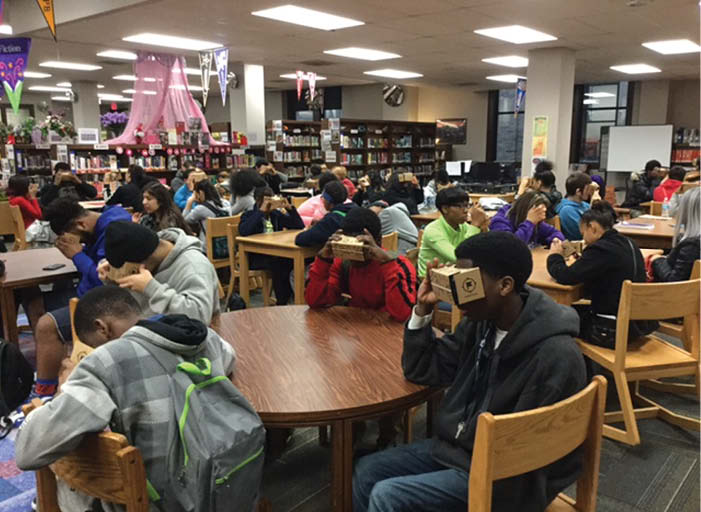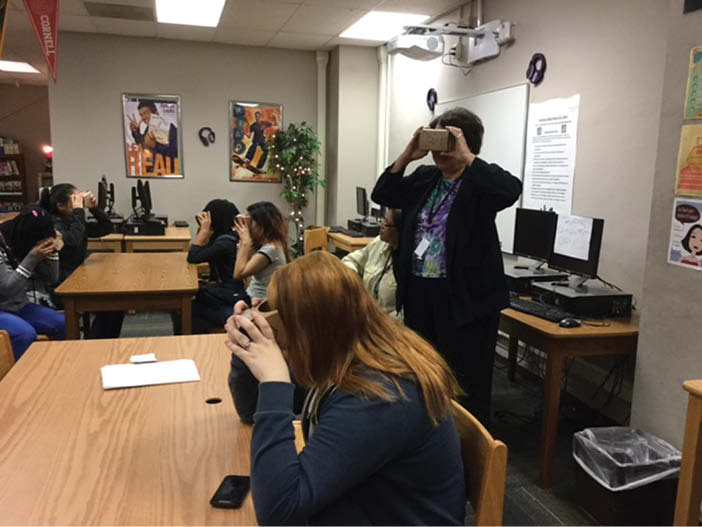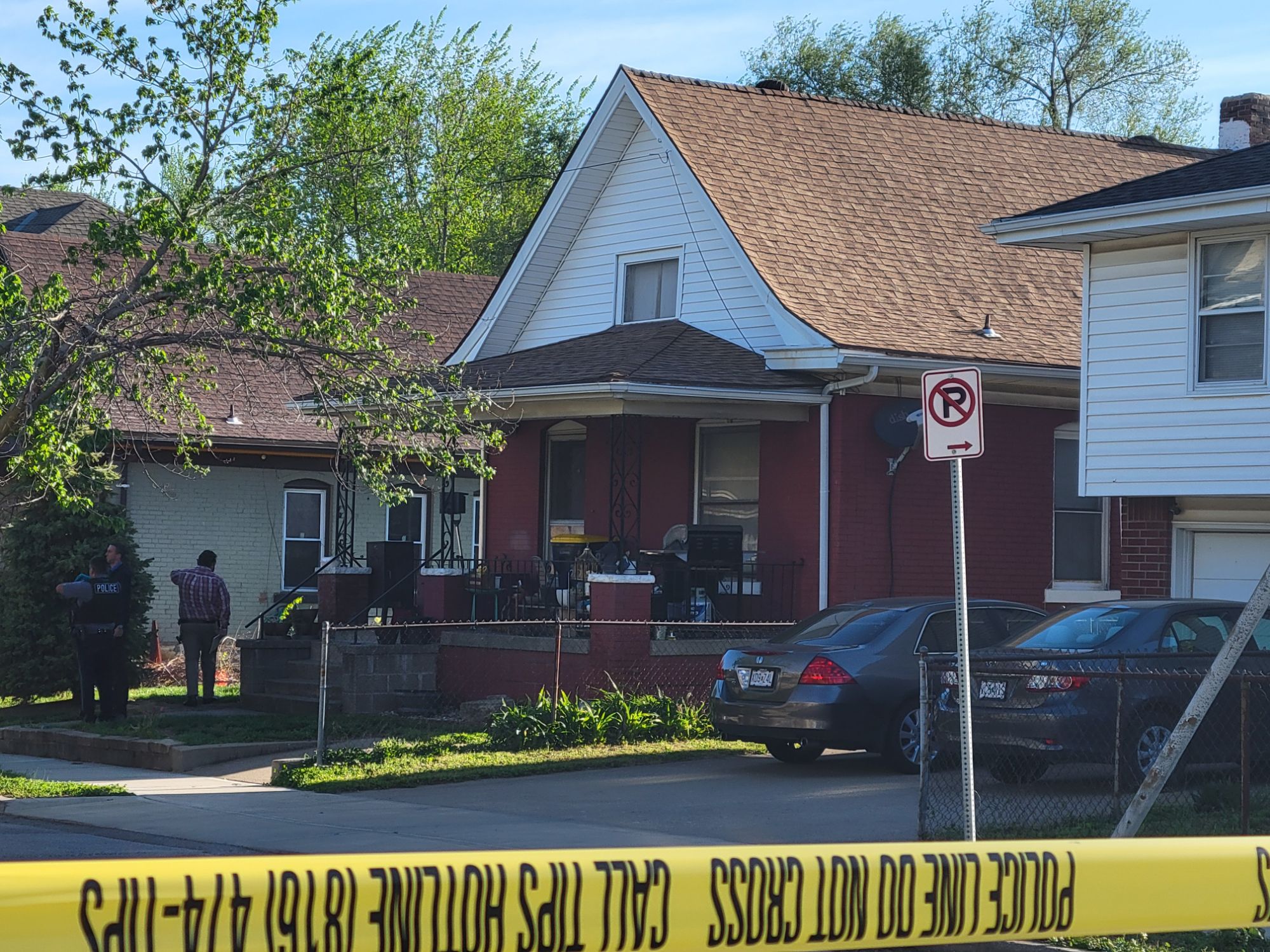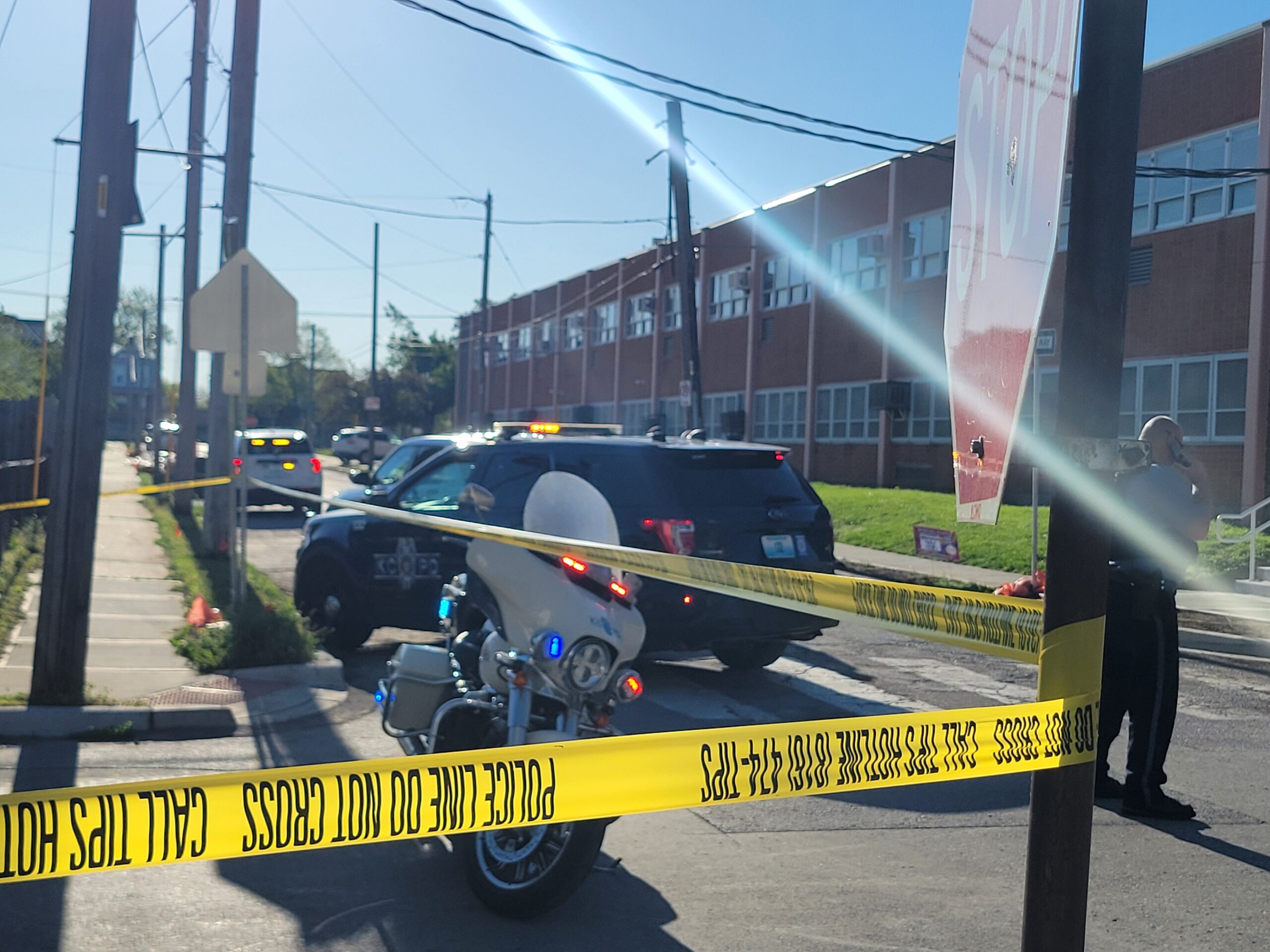
Northeast News
March 9, 2016
KANSAS CITY, Missouri — Over 500 students from Northeast High School were able to stare at a shark on a tropical ocean floor. A few minutes later, the students took a close-up look at giant tortoises in their natural habitat on the Galapagos Islands.
They did all this without leaving the Historic Northeast.
Last month, Northeast High School hosted the Google Expeditions Pioneer Program, which utilizes Google Cardboard, a smart phone app that employs cardboard goggles similar to the classic View-Master, to take their students on virtual field trips to exotic locations across the globe. The technology adds a modern element to 3D photos, allowing the viewer a panoramic point of view. Phones are placed inside the goggles and use the app to display stereoscopic images.
Gayle L. Richberg, science teacher at Northeast High School, was able to offer her students the unique experience by using a tablet synced to the phones Google provided. Information was provided by Google for the teacher to read on each expedition. Richberg said the school’s librarian Carmen Truax learned about the program at a recent seminar, which allowed NEHS to be the first high school in Kansas City to utilize this program.
“We were very fortunate to get this program when we did,” Richberg said.
The program, Richberg explained, isn’t just useful for science classes, but can also bring to life stories for English courses and can take student back in time for history classes.
“I told my students it was like being given free tickets to a jet to look at different things around the world and they loved that idea,” Richberg said. “It was so much better than watching a video on Youtube.”
Along with traveling to the depths of an ocean floor and visiting the Galapagos Islands, Richberg noted that one mountain they traveled to allowed them to look down to get an idea of the perception depth or up at the sky. Regardless of where they were, she said the students loved the program.
“It felt like we were there,” Richberg said. “We were able to turn 360 degrees. It was very interesting for them.”
The students, unfortunately, didn’t have too much time to utilize the program. And while there is no timeline for when Google Cardboard might be available for permanent, widespread use in schools, Northeast High School was able to get a special preview for what might be a standard classroom tool in the near future. Richberg said school districts across the country, including KCPS, have been given the option to purchase the program.
“We’re working to see if we can [purchase it for the district],” Richberg said.



















